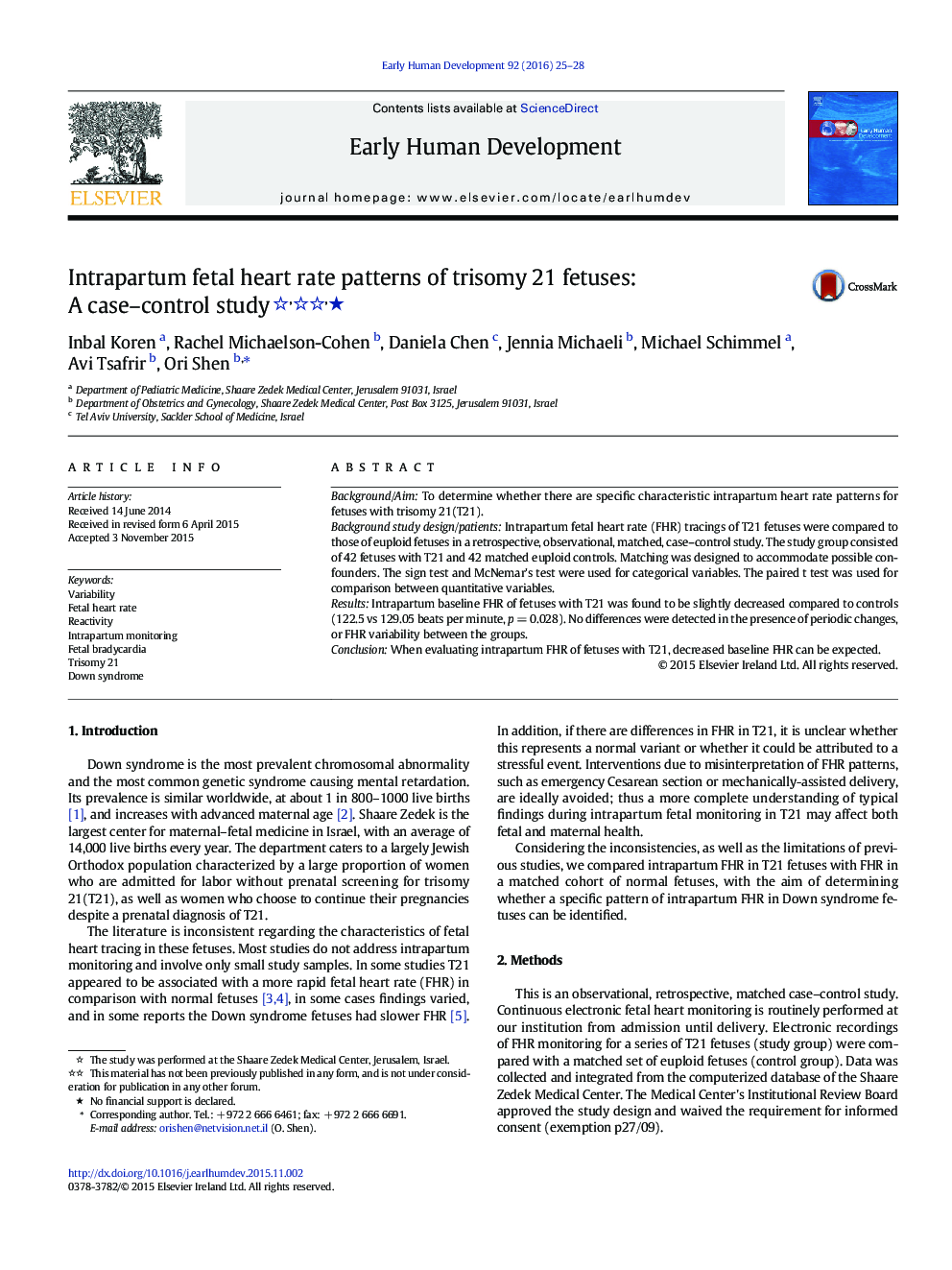| Article ID | Journal | Published Year | Pages | File Type |
|---|---|---|---|---|
| 3916352 | Early Human Development | 2016 | 4 Pages |
•Fetuses with trisomy 21 have on average a lower heart rate than euploid controls.•No other differences were detected on fetal heart tracing between trisomy 21 and euploid fetuses.•Mild bradycardia need not be interpreted as fetal distress in trisomy 21 fetuses.
Background/AimTo determine whether there are specific characteristic intrapartum heart rate patterns for fetuses with trisomy 21(T21).Background study design/patientsIntrapartum fetal heart rate (FHR) tracings of T21 fetuses were compared to those of euploid fetuses in a retrospective, observational, matched, case–control study. The study group consisted of 42 fetuses with T21 and 42 matched euploid controls. Matching was designed to accommodate possible confounders. The sign test and McNemar's test were used for categorical variables. The paired t test was used for comparison between quantitative variables.ResultsIntrapartum baseline FHR of fetuses with T21 was found to be slightly decreased compared to controls (122.5 vs 129.05 beats per minute, p = 0.028). No differences were detected in the presence of periodic changes, or FHR variability between the groups.ConclusionWhen evaluating intrapartum FHR of fetuses with T21, decreased baseline FHR can be expected.
